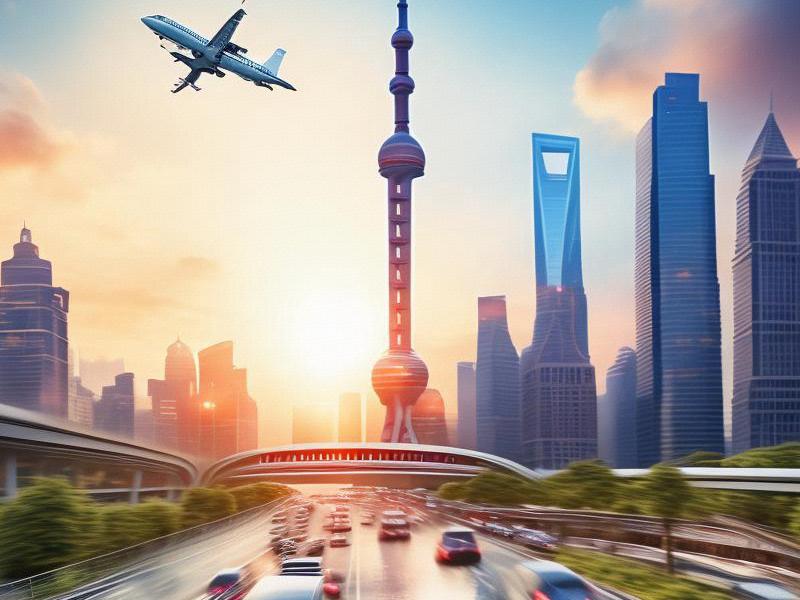
Shanghai, the bustling metropolis on the banks of the Huangpu River, has long been a symbol of China's rapid economic rise. Over the past few decades, it has transformed from a colonial port city into a global financial and innovation hub, setting the pace for urban development and modernization in China.
In the late 19th and early 20th centuries, Shanghai was known as the "Paris of the East," a cosmopolitan city that attracted merchants, adventurers, and intellectuals from around the world. The Bund, with its colonial-era architecture, and the vibrant French Concession, are remnants of that era, now seamlessly integrated into the modern cityscape.
The economic reforms initiated in 1978 by Deng Xiaoping marked a new chapter for Shanghai. The city was designated as one of China's first Special Economic Zones (SEZs), although its scope was broader than traditional SEZs. This strategic move positioned Shanghai as a gateway for foreign investment and trade, propelling it to the forefront of China's economic reforms.
One of the most significant milestones in Shanghai's development was the establishment of the Pudong New Area in 1990. Once a rural area across the Huangpu River from the historic city center, Pudong has been transformed into a modern financial district, home to some of the world's tallest skyscrapers, including the iconic Oriental Pearl Tower and the Shanghai Tower. The Lujiazui Financial District, with its cluster of high-rise buildings, has become synonymous with Shanghai's economic prowess.
上海龙凤阿拉后花园 Shanghai's transformation is not limited to its skyline. The city has invested heavily in infrastructure, transportation, and urban planning. The Maglev train, connecting Pudong International Airport to the city center in just minutes, is a testament to Shanghai's commitment to cutting-edge technology and efficient urban mobility. The expansion of the Shanghai Metro system, now one of the largest and most efficient in the world, has further facilitated the movement of people and goods across the city.
The city's port, the Port of Shanghai, is the busiest container port in the world, handling billions of tons of cargo annually. This maritime hub underscores Shanghai's role as a key player in global trade and logistics. The integration of the port with the Yangtze River Delta region has created a powerful economic cluster, driving regional development and competitiveness.
Shanghai's rise as a global innovation hub is equally remarkable. The city has established itself as a center for research and development, attracting top-tier universities, research institutions, and multinational corporations. Zhangjiang Hi-Tech Park, often referred to as "China's Silicon Valley," is a hub for high-tech industries, biotechnology, and information technology. It houses numerous startups, incubators, and research facilities, fostering a vibrant innovation ecosystem.
The city's commitment to sustainability and green development is also noteworthy. Shanghai has implemented various initiatives to reduce pollution, promote renewable energy, and enhance urban livability. The construction of the world's first commercial magnetic levitation wind turbine in Pudong is a prime example of the city's innovative approach to sustainable energy.
上海贵族宝贝自荐419 Culturally, Shanghai is a melting pot of tradition and modernity. The city boasts a rich cultural heritage, with landmarks such as the Yu Garden, the Shanghai Museum, and the Old Town (Nanxiang). These sites reflect the city's deep historical roots and its ability to preserve cultural identity amidst rapid modernization.
At the same time, Shanghai is a global cultural capital, hosting international festivals, art exhibitions, and fashion shows. The city's vibrant arts scene, with galleries, theaters, and music venues, attracts artists and cultural enthusiasts from around the world. The Shanghai International Film Festival, one of the oldest and most prestigious film festivals in Asia, is a testament to the city's cultural vibrancy.
Education is another area where Shanghai excels. The city is home to some of the best universities in China, including Fudan University and Tongji University, which are renowned for their academic excellence and research contributions. Shanghai's education system is highly regarded, producing a skilled workforce that drives the city's economic and technological advancements.
上海贵族宝贝sh1314 Shanghai's development is not without challenges. The rapid urbanization has led to issues such as housing shortages, traffic congestion, and environmental concerns. However, the city government has implemented various measures to address these challenges, including the construction of affordable housing, the promotion of public transportation, and the adoption of green technologies.
The future of Shanghai looks promising, with ambitious plans for further development and innovation. The city is positioning itself as a leader in the digital economy, with initiatives to promote artificial intelligence, big data, and the Internet of Things (IoT). The establishment of the Shanghai Free-Trade Zone has further enhanced the city's role in global trade and investment.
Shanghai's story is a testament to the power of vision, determination, and innovation. It serves as a model for other cities aspiring to achieve sustainable development and global competitiveness. As Shanghai continues to evolve, it remains a beacon of hope and opportunity, inspiring people around the world with its resilience and dynamism.
In conclusion, Shanghai's journey from a colonial port city to a global hub for development and innovation is a remarkable tale of transformation. The city's achievements in economic growth, technological advancement, cultural enrichment, and environmental sustainability are a source of pride for its residents and a model for other cities worldwide. As Shanghai looks to the future, it is poised to continue its legacy as a vibrant and dynamic global city.
